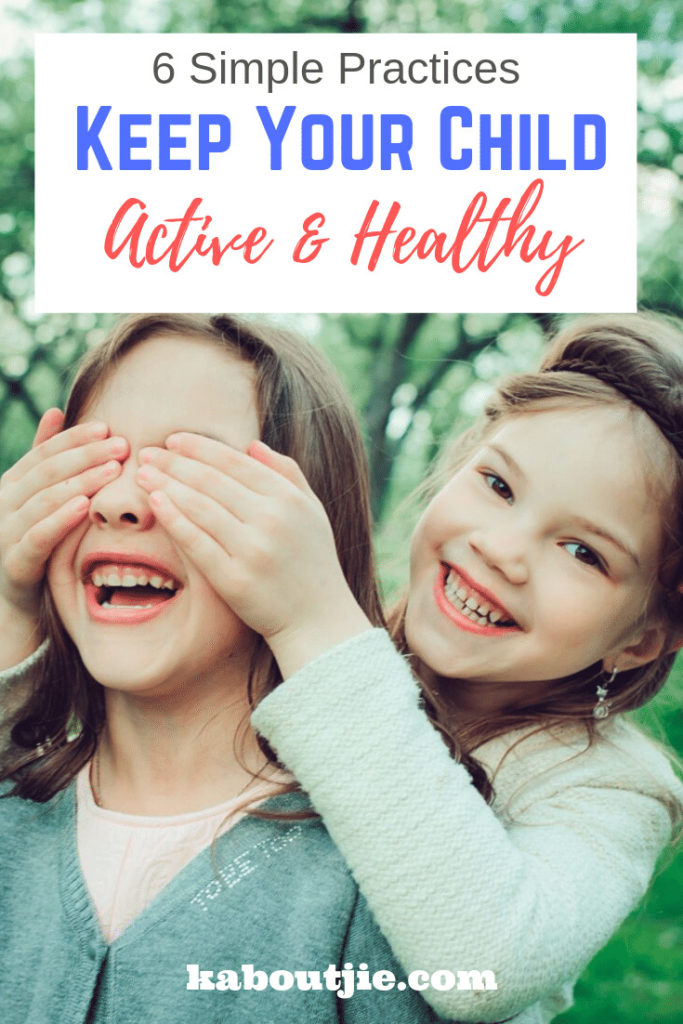No one said that parenting would be easy, but it doesn’t have to be a struggle. Although it’s normal to worry about your kids when they’re heading off to school, you can lower those anxiety levels by preparing for the transition. You also need to accept that your child is growing, and you can’t keep him or her in a protective bubble. In fact, over protective parenting can have far worse consequences for your child, persisting into adulthood. If you’re worried about frequent infections, fatigue or low energy, learning problems, and so on, there are steps that you can take to better prepare your child for the demands and stress of schooling. Before you try to impart good habits and practices to your child, just remember that kids can be quick to call you out on your hypocrisy and double standards, so be a good role model, or learn to cheat smart and not get caught!

Things to Consider for Your Child’s Wellbeing
Hand Washing and Hygiene
With developing immune systems, kids are more vulnerable to infections than adults. Because of their close proximity to other kids, the risk of infection is even higher in classrooms. Strengthening your child’s immunity requires a multi-faceted approach that includes healthy eating, physical activity, sleep, and relaxation. We’ll get to each of those later. What you need to get your child to do, is to learn the importance of hand washing. As adults, it’s something that we take for granted, but it’s all new to your child. This is actually the most effective way to lower the risk of infections spread at school and elsewhere.
Teach your child to wash his or her hands thoroughly, especially after traveling, using the bathroom, and before eating. Data shows that hand washing alone can lower the risk of common infections by as much as 50-60%. Aside from hand washing, also make sure that your child learns to resist that urge to scratch at the eyes or nose with unwashed hands. While you should encourage your child to share, you should also teach your child to avoid sharing utensils like cups and glasses when there are infections going around.
Sleep Discipline
Sleep is perhaps the most overlooked and important requirement for childhood development, as it affects every aspect of wellbeing. Sleep has a direct influence on physical growth and development, cognitive development, immune function, and energy levels. Impaired, disturbed, and inadequate sleep can give rise to developmental disorders, learning impairment, fatigue, and other problems.
Sleep requirements can vary from individual to individual, with the needs also varying among different age groups. On an average however, most school-aged children between 3 to 12 years require at least 10 to 12 hours of sleep daily. A sleep routine is something that you will need to cultivate, encouraging your child to go to bed early and rise early. A disciplined routine and pre-sleep ritual to wind down will help, as your child will get conditioned to the sleep schedule and you will only need to intervene at the start.

Lookout for Stress and Anxiety
Most of us are familiar with stress and anxiety disorders because of how pervasive they are today. We tend to think of them as ‘grown up’ problems. That couldn’t be less true, as children are also susceptible to stress and anxiety. Aside from the pressure to perform and compete academically, children also face a lot of social pressure to fit in with their peers. While some amount of stress and anxiety is normal, high levels of stress can give rise to chronic anxiety disorders, depression, and other behavioral disorders. Be watchful for any behavioral changes and take steps to help your child de-stress. If you find that the situation does not improve or if there are further changes in your child’s behavior and energy levels, you should seek help.
Growing Up with Technology
This is where parenting gets particularly tricky. Technology has become the bedrock of our modern life making it impractical, not just hard, to draw clear boundaries. Nevertheless, it is up to you to set common sense limits on screen time and access to digital devices. The internet can be dangerous to kids for a variety of reasons, which is why supervision is so important. Aside from graphic video games and mature video content, the internet is also home to online predators and bullies, who can threaten or harm your child. There are also more subtle risks lurking beneath the surface, such as apps and advertisements that encourage particular behaviors even when addictive.
As a basic rule, screen time should be restricted to the extent that it does not interfere with other healthy behaviors such as sleep and physical activity. It would also be a good idea to review any digital content, whether movies or games, before making it available to your child. You can also use parental controls and filters on digital devices and online accounts.

Make Healthy Eating Fun
Diet and nutrition choices have a huge impact on every aspect of your child’s health and wellbeing. As any parent can tell you, it’s hard getting kids to eat healthy, unless it’s a family choice. This is where being a good role model is most vital, as you can’t encourage your child to eat healthy, when you’re not. Meal times need to be regular and frequent to create a routine and to lower the risk of overeating and bad choices. Meals should be balanced, including all nutritional groups, with a focus on fresh foods, while avoiding processed and refined foods.
This is not easy, but you can make eating healthy fun by using colorful natural foods and food decoration. You’ll find plenty of inspiration online and will be surprised to learn that kids can even enjoy a healthy veg salad if it’s made to look appetizing enough!
Encourage Physical Activity
Not all kids are interested in competitive sports and some may just not have the confidence to participate in activities at school. As a parent it’s up to you to inculcate that love for physical activity and the best way to do this is by getting the family involved. Engage in outdoors activities like walking, trekking, swimming, and other non-competitive sports. Your child is more likely to participate and come out of his or her shell when there is no pressure and everyone’s just having fun. Physical activity is important to kids for their physical development, as well as social skills. Higher levels of fitness also help to raise overall levels of confidence and self-esteem.
While all of these suggestions can help you raise a healthy child, you should consider talking to pediatricians and child counselors for more personal recommendations that are crafted for your parenting style and your child’s personality.
About The Author
Anita Fernandes has been writing extensively on health and wellness for over a decade. She has expertise in nutrition, fitness, public health, and weight loss and has contributed content to a variety of leading digital health publishers. Anita has a unique perspective on healthy living and lifestyle, as she has battled and overcome eating disorders and obesity. She shares her experiences in an effort to help others overcome the physical and mental health problems that can sometimes seem insurmountable.
 Kaboutjie SA Mommy Blogs by Lynne Huysamen
Kaboutjie SA Mommy Blogs by Lynne Huysamen





vert interesting read i try my best to have playtime with my baby and keep technolohy away from him and i also try my best to prepare his meals so that he eats a well balanced meal
Absolutely love this article definitely going to help me with my son
Thank you for sharing this important information
Very good advice- thanx
These are really great tips! Especially the last two about exercise and diet. With childhood obesity becoming so prevalent, it is important to set your kid up with good habits for a fit life.